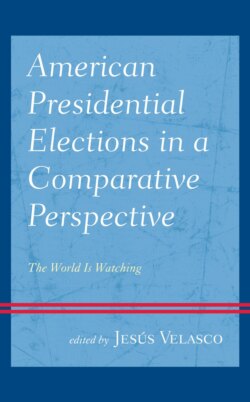Читать книгу American Presidential Elections in a Comparative Perspective - Группа авторов - Страница 32
На сайте Литреса книга снята с продажи.
THE ELECTION’S IMPLICATIONS FOR CHINA
ОглавлениеThe 2016 presidential election certainly damaged the United States’ image in China. While American democracy might not have entirely lost its appeal and legitimacy as an exemplary political system, there are at least four important implications for China given that the election has markedly changed Chinese perceptions of the United States.
First, the unusual negativity and ugliness of the election, as manifested by the nasty campaigns of Trump and Clinton, will not only force Americans to reflect on their own political system, but also compel the Chinese to rethink their understanding of democracy (and American democracy) as it relates to China’s own political reforms. In particular, the chaos and disorder of the election has undermined the attractiveness of representative democracy for a nation that traditionally values stability above all else.
Second, as the election reinforced Chinese skepticism about the US-style democracy it also bolstered the Chinese government’s own narrative against the adoption or emulation of any non-Chinese political system in China. As the People’s Daily wrote in one of its editorials, “While for a long time the United States trumpeted the extraordinary excitement of its elections as a symbol of its superior institutions, it’s time for this ‘teacher of democracy’ to put away its super self-confidence and arrogance.”68
Third, since some perceive the failure of American democracy as China’s gain, the ideological competition between China and the United States will most likely intensify in the coming years as both nations strive more eagerly to prove to the world the values of their unique model of development. For the Chinese government, the 2016 election was perhaps the best opportunity for promoting the idea that the American model of democracy had nothing of value to offer China.
Lastly, and perhaps most importantly, as the only country widely seen as a possible challenger to the United States’ dominance, Chinese views of the United States are consequential because they serve as a point of reference in China’s foreign policy decision making. In the past, China-US relations were able to weather many storms because the Chinese government saw the United States as extremely influential in terms of the global structure of power and therefore chose to avoid confrontation with it. However, because of the United States’ internal weaknesses and divisions, which were exposed by this year’s election, changing Chinese perceptions of the United States might prompt Chinese decision makers to be more assertive in their dealings with the United States and there might be fewer reasons for China to avoid challenging American interests in areas that the two countries have major disagreements. After all, the Chinese, based on lessons from their own history, firmly believe that before an empire collapses it first erodes from within.
